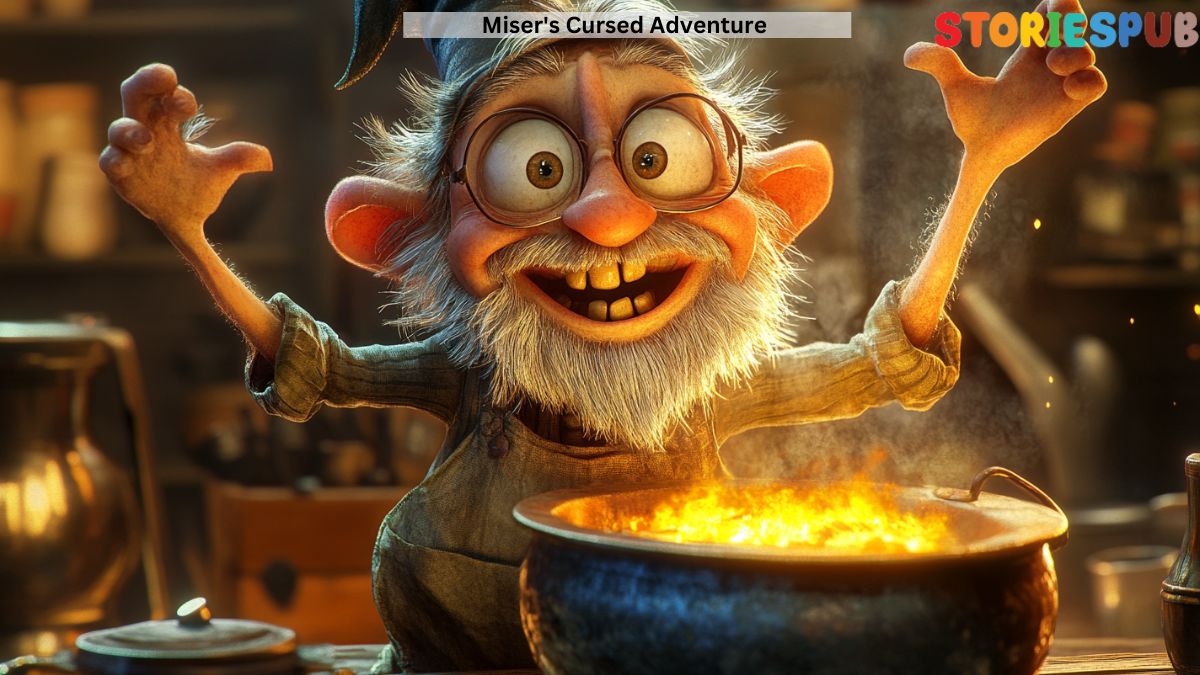Summarize this Article with:

Are you intrigued by the enigmatic life of Mickey Cohen, the American gangster known for his dual roles as a boxer and entrepreneur? In this detailed biography, we’ll delve into Mickey Cohen’s early life in Brooklyn, New York, and his remarkable journey from a young boy in a Jewish immigrant family to a notorious figure in American gangster history.
We’ll explore his boxing career, his rise in organized crime, and the notable feuds and rivalries that marked his criminal reign.
Additionally, we’ll shed light on his entrepreneurial ventures and how he wielded both legitimate businesses and criminal enterprises to amass wealth and influence. Finally, we’ll unravel the story of Mickey Cohen’s later life and the unexpected circumstances of his death, bringing an end to an era in the world of organized crime.”
Early Life and Background
Mickey Cohen’s life began on September 4, 1913, in the bustling borough of Brooklyn, New York. He was born to Jewish immigrant parents, both hailing from Eastern Europe. His father, Max Cohen, was a tailor, while his mother, Fanny, was a homemaker. Mickey was the youngest of six siblings, surrounded by older brothers and sisters.
Cohen’s family background was firmly rooted in the working-class Jewish immigrant community that was prevalent in Brooklyn during the early 20th century. The struggles and aspirations of his parents in a new land would significantly influence his future choices and ambitions.
Mickey Cohen’s upbringing was a blend of the cultural values and challenges faced by immigrant families in the United States. He was exposed to the values of hard work, family, and the importance of community within the tight-knit Jewish neighbourhood of Brooklyn. As the youngest child, he learned the dynamics of a large family, which likely contributed to his strong sense of loyalty and the ability to forge close relationships, which later played a role in his criminal associations.
During his formative years, Cohen’s early influences were undoubtedly shaped by the immigrant experience and the struggles of his parents to provide for their family. This exposure to the tough realities of life in a working-class neighbourhood had a lasting impact on his character, instilling a sense of resilience and resourcefulness.
Boxing Career
Mickey Cohen’s foray into professional boxing marked a significant chapter in his life, showcasing his prowess in the ring, determination, and the skills that would eventually lead him to an entirely different world – that of organized crime.
Mickey Cohen’s Foray into Professional Boxing
In the 1930s, Mickey Cohen, who had already been involved in petty crimes, found himself drawn to the world of professional boxing. Boxing was a sport that required discipline, physical strength, and strategic thinking – qualities that he had developed, albeit for different purposes. His entry into the boxing world wasn’t just a random choice; it was a calculated decision to legitimize his reputation and earn a living outside the shadowy world of crime.
Cohen, known for his tenacity and determination, quickly rose through the ranks. He was a lightweight fighter, and his boxing career became synonymous with his name. He trained rigorously, honed his skills, and fought his way up in the professional boxing circuit. This transition into the world of boxing served as a stepping stone for Cohen’s eventual notoriety.
Highlights and Achievements as a Boxer
Mickey Cohen’s boxing career was marked by several noteworthy achievements. He managed to gain recognition and respect within the sport, although he never reached the pinnacle of fame as a boxer. Some of the highlights of his boxing career include:
- Fights and Victories: Cohen participated in numerous fights, and many of these were victorious, contributing to his reputation as a capable fighter.
- Local Recognition: He gained recognition in the Los Angeles boxing scene, becoming a known name in local boxing circles.
- Training and Dedication: Cohen’s dedication to his boxing career was evident in his rigorous training regimen and the time he invested in perfecting his craft.
However, his boxing career was not without its challenges. Despite his tenacity, Cohen wasn’t able to secure a world championship, and this perhaps led him to explore other avenues where he could gain wealth and notoriety.
Transition from Boxing to Organized Crime
As Cohen’s boxing career progressed, he started to blur the lines between his legitimate athletic pursuits and his criminal activities. He became associated with individuals from the criminal underworld who saw his potential as a valuable asset in their illicit enterprises.
This transition was not unusual in the world of organized crime. Many individuals used legitimate businesses, such as boxing, to launder money and as a front for their illegal operations. For Cohen, boxing served as a platform to connect with influential figures in organized crime. The financial rewards and opportunities in the criminal world eventually overshadowed his boxing career, leading to his full immersion in the world of organized crime.
Mickey Cohen’s journey from the boxing ring to the criminal underworld marked a critical turning point in his life, where he would become one of the most infamous American gangsters of his era.
Criminal career
Mickey Cohen’s rise in the world of organized crime is a compelling story of ambition, ruthlessness, and power. This section delves into the details of his ascent into the criminal underworld.
Mickey Cohen’s Involvement in the Criminal Underworld
Mickey Cohen’s journey into the criminal underworld was characterized by a deliberate and calculated progression. He moved from being a small-time delinquent to a key figure in organized crime.
Cohen’s early criminal involvements were largely petty in nature, but they laid the groundwork for his deeper involvement in more significant criminal enterprises. He began associating with influential crime figures and gradually became an integral part of various criminal activities. This transition marked the beginning of his notoriety within the criminal world.
Cohen’s association with powerful criminal figures, such as Benjamin “Bugsy” Siegel and Frank Nitti, provided him with both mentorship and opportunities to expand his influence. Over time, he amassed significant power and wealth, transforming into a formidable figure within the criminal underworld.
Key Criminal Activities and Affiliations
Mickey Cohen’s criminal portfolio included a wide range of illicit activities, making him a multi-faceted player in organized crime. Some of the key criminal activities and affiliations during his rise included:
- Gambling: Cohen was deeply involved in illegal gambling operations, from bookmaking to operating casinos. His ventures in the gambling industry provided him with substantial income and a network of criminal associates.
- Extortion and Protection Rackets: Cohen was notorious for running extortion and protection rackets, forcing businesses to pay for “protection” to avoid harassment and violence.
- Associations: He had strong ties to the Chicago Outfit and other crime families, making him a significant figure in the national organized crime landscape.
- Drug Trafficking: Cohen was involved in drug trafficking, particularly in the distribution of narcotics, which further expanded his criminal empire.
Notable Run-Ins with the Law
Cohen’s criminal activities naturally led to numerous encounters with law enforcement. His rap sheet was extensive, and he was arrested and prosecuted on various charges throughout his criminal career. Some of his notable run-ins with the law included:
- Arrests and Convictions: Cohen faced multiple arrests for charges ranging from assault to income tax evasion. He was convicted on several occasions, serving time in prison as a result.
- Rival Gang Conflicts: His involvement in gangland conflicts often drew the attention of law enforcement, leading to arrests and investigations into his criminal enterprises.
- Investigations: Cohen was the subject of numerous law enforcement investigations, including those related to organized crime and his involvement in illegal activities.
Mickey Cohen’s relentless pursuit of power and wealth in the criminal underworld ultimately led to a trail of legal troubles and rivalries. His ability to navigate through these challenges demonstrated his resilience and cunning, making him a force to be reckoned with in the world of organized crime.
Mickey Cohen impact on American gangster history
Mickey Cohen was one of the most notorious gangsters in American history. He was known for his ruthlessness, his business acumen, and his flamboyant personality. Cohen’s impact on American gangster history is significant.
Cohen’s rise to power in Los Angeles: Cohen’s rise to power in Los Angeles coincided with the decline of the Prohibition era. As Prohibition ended, Cohen began to consolidate his control over the criminal underworld in Los Angeles. He used his connections in the boxing world to build his empire, and he quickly became one of the most powerful gangsters in the city.
Cohen’s flamboyant lifestyle: Cohen was known for his flamboyant lifestyle. He drove expensive cars, wore expensive clothes, and frequented nightclubs and casinos. Cohen’s lifestyle made him a target for law enforcement, but it also made him a celebrity. Cohen was featured in magazines and newspapers, and he even had his own radio show.
Cohen’s impact on Hollywood: Cohen had a close relationship with the Hollywood film industry. He used his connections in Hollywood to launder money and to intimidate his rivals. Cohen was also a regular at Hollywood parties and events. His association with Hollywood gave him a certain level of legitimacy, and it helped him to maintain his power in Los Angeles.
Cohen’s downfall: Cohen’s downfall began in the early 1950s. He was arrested on several charges, including income tax evasion and racketeering. Cohen was convicted and sentenced to prison. After his release from prison, Cohen was deported to Canada.
Cohen’s legacy
Cohen’s legacy is complex and controversial. He was a ruthless gangster who was involved in a variety of criminal activities. However, he was also a savvy businessman and a celebrity. Cohen’s rise and fall is a cautionary tale about the dangers of organized crime.
Here are some specific ways in which Mickey Cohen impacted American gangster history:
- He was one of the first gangsters to use the media to his advantage. He cultivated a public image as a glamorous and successful businessman. This helped him to maintain his power and to intimidate his rivals.
- He was also one of the first gangsters to diversify his criminal activities. He was involved in gambling, extortion, drug trafficking, and prostitution. This made him a more powerful and dangerous figure.
- Cohen’s association with Hollywood gave him a certain level of legitimacy. This made it difficult for law enforcement to bring him down.
- Cohen’s downfall in the early 1950s was a sign of the changing times. Organized crime was no longer tolerated by the public or by the government. Cohen’s downfall helped to usher in a new era of law enforcement crackdowns on organized crime.
Overall, Mickey Cohen was a significant figure in American gangster history. He was one of the most powerful and ruthless gangsters of his time. He also had a significant impact on Hollywood and on the public perception of organized crime.
Entrepreneurial Ventures
Mickey Cohen’s entrepreneurial ventures played a pivotal role in his multifaceted criminal career. While his criminal activities were extensive, he also engaged in legitimate businesses to both mask his illegal gains and expand his wealth. Here, we explore his entrepreneurial pursuits and their significance:
Nightclubs and Restaurants: One of Cohen’s most well-known legitimate businesses included nightclubs and restaurants. He invested in and owned several popular entertainment establishments in Los Angeles. This not only provided him with a cover for his illegal activities but also allowed him to generate substantial income from these businesses.
La Cosa nostra Connections: Cohen’s entrepreneurial ventures often had indirect connections to the criminal underworld. He used his associations with the Italian Mafia, including the Chicago Outfit, to secure business interests. These connections provided him with both protection and financial support.
Money Laundering: Cohen’s legitimate businesses served as effective vehicles for money laundering. The income from his criminal activities could be funneled through his nightclubs and restaurants, appearing as legal earnings. This money laundering tactic was a common strategy used by many gangsters of his era to legitimize their wealth.
Infiltration of Local Economy: His legitimate businesses allowed him to infiltrate the local economy, making him a prominent figure in the business community of Los Angeles. This increased his influence and made it easier to expand his criminal empire by exerting control over various aspects of the city’s operations.
Control Over the Entertainment Industry: Cohen’s involvement in nightclubs and restaurants gave him influence in the entertainment industry. He often associated with Hollywood celebrities, cementing his presence in popular culture. This intersection between the criminal underworld and the glitz of Hollywood further solidified his place in American gangster history.
Revenue Generation: Cohen’s legitimate businesses were not merely fronts for his criminal activities; they were also profitable ventures in their own right. He generated substantial income from these businesses, adding to his overall wealth and power.
Legacy and Infamy: Mickey Cohen’s entrepreneurial pursuits have become an integral part of his legacy. They serve as a reminder of the complex and cunning nature of organized crime during his era. His ability to navigate both legal and illegal realms, while using legitimate businesses to maintain a veneer of respectability, has left a lasting impact on how gangsters are perceived in American history.
Feuds and Rivalries
Mickey Cohen’s life was marked by feuds and rivalries with various individuals in the criminal world. These conflicts often escalated into violent confrontations and had a significant impact on his criminal career. Here, we delve into some of the notable feuds and rivalries in Mickey Cohen’s life:
Jack Dragna and the Los Angeles Mafia: One of the most significant feuds in Cohen’s criminal career was with Jack Dragna, a prominent figure in the Los Angeles Mafia. This rivalry revolved around control over the city’s criminal activities, including gambling, extortion, and other illicit operations. The power struggle between Cohen and Dragna often erupted into violent clashes and turf wars, leading to a series of assassinations and attempted assassinations.
Benjamin “Bugsy” Siegel: While Cohen initially worked with Siegel, they had a falling out over control of the rackets in Los Angeles. The competition between these two influential gangsters created tensions within the criminal underworld. Siegel’s assassination in 1947, which remains unsolved, is often attributed to this rivalry.
LAPD and Law Enforcement: Cohen’s criminal activities frequently brought him into conflict with law enforcement, particularly the Los Angeles Police Department (LAPD). He had a reputation for evading arrest and using bribery and intimidation to maintain his operations. These confrontations with law enforcement agencies added to his infamy and drew significant attention to his criminal activities.
Rival Gangs and Criminal Figures: As a major player in the Los Angeles criminal landscape, Cohen’s interests often clashed with those of rival gangs and criminal figures. These rivalries could be over control of territory, criminal enterprises, or personal disputes. The resulting violence and tensions contributed to the overall volatility of the criminal underworld during his time.
Internal Feuds and Power Struggles: Within his own criminal organization, there were internal feuds and power struggles. As Cohen’s influence grew, so did the competition for leadership positions and access to the profits of his various enterprises. These internal disputes sometimes led to betrayals and violent confrontations.
Feuds with Hollywood Figures: Cohen’s influence extended into the entertainment industry, and he often had conflicts with Hollywood figures, including actors and producers. These feuds had the potential to impact the careers and safety of those involved.
These feuds and rivalries were not only a central feature of Mickey Cohen’s life but also a reflection of the volatile and dangerous world of organized crime during his era. They contributed to his infamy and played a crucial role in shaping his legacy as an American gangster. The violence and ruthlessness associated with these conflicts remain a defining aspect of his criminal history.
Legal Troubles and Imprisonment
Mickey Cohen had a long history of legal troubles. He was arrested on numerous occasions for a variety of crimes, including gambling, extortion, racketeering, and income tax evasion. Cohen was convicted of several crimes, and he served time in prison.
In 1949, Cohen was indicted on charges of racketeering. He was accused of running a gambling ring and extorting money from businesses. Cohen was convicted and sentenced to five years in prison. He served two years before being released on appeal.
In 1951, Cohen was arrested again on charges of income tax evasion. He was accused of failing to pay taxes on millions of dollars in income from his criminal activities. Cohen was convicted and sentenced to four years in prison. He served two years before being released on parole.
After his release from prison, Cohen was deported to Canada. He lived in Canada for several years, but he eventually returned to the United States illegally. Cohen was arrested again in 1961 and charged with violating his deportation order. He was convicted and sentenced to two years in prison. He served one year before being released.
Cohen’s legal troubles and imprisonment were a major setback for his criminal empire. However, he remained a powerful figure in the Los Angeles underworld until his assassination in 1961.
Impact of Legal Troubles and Imprisonment
Cohen’s legal troubles and imprisonment had a significant impact on his life and career. He was forced to spend several years in prison, and he was eventually deported to Canada. Cohen’s legal troubles also made it difficult for him to operate his criminal empire. He was constantly under the scrutiny of law enforcement, and his businesses were frequently raided.
Despite his legal troubles, Cohen remained a powerful figure in the Los Angeles underworld until his assassination in 1961. He was a ruthless and ambitious gangster, and he was able to maintain his power even while facing legal challenges.
Cohen’s story is a cautionary tale about the dangers of organized crime. He was a successful gangster for many years, but he eventually paid the price for his crimes. Cohen’s legal troubles and imprisonment are a reminder that even the most powerful gangsters are not above the law.
Later Life and Death
Mickey Cohen’s later life was marked by a combination of continued criminal activities and personal challenges. His eventual death marked the end of a turbulent and notorious chapter in American gangster history.
In his later years, Cohen continued to be involved in criminal enterprises, although his power and influence waned. The changing dynamics of organized crime, including increased law enforcement pressure, impacted his operations.
Cohen’s health also deteriorated as he aged. His involvement in the criminal underworld had taken a toll on his physical and mental well-being. Despite his decline, he remained a figure of interest for law enforcement agencies, who continued to monitor his activities.
On July 29, 1976, in Los Angeles, Meyer Harris “Mickey” Cohen passed away. Notably, his death was attributed to natural causes, which set him apart from many of his criminal associates who met violent and untimely ends. His passing marked the end of his criminal reign and the closing of a tumultuous and eventful chapter in American gangster history.
Mickey Cohen’s life, filled with criminal exploits, controversies, and conflicts, had left a lasting imprint on the criminal landscape of the 20th century. His death signified the end of an era, as the influence of traditional organized crime families gradually waned, and law enforcement continued to intensify efforts to combat the criminal underworld.
Legacy
Mickey Cohen’s legacy is complex and controversial. He was a ruthless gangster who was involved in a variety of criminal activities. However, he was also a savvy businessman and a celebrity. Cohen’s rise and fall is a cautionary tale about the dangers of organized crime.
Cohen’s impact on American culture is significant. He was one of the first gangsters to use the media to his advantage, and he cultivated a public image as a glamorous and successful businessman. This helped him to maintain his power and to intimidate his rivals.
Cohen’s association with Hollywood also gave him a certain level of legitimacy. This made it difficult for law enforcement to bring him down.
Cohen’s downfall in the early 1950s was a sign of the changing times. Organized crime was no longer tolerated by the public or by the government. Cohen’s downfall helped to usher in a new era of law enforcement crackdowns on organized crime.
Conclusion
Mickey Cohen was a complex and controversial figure. He was a ruthless gangster who was involved in a variety of criminal activities, but he was also a savvy businessman and a celebrity. Cohen’s rise and fall is a cautionary tale about the dangers of organized crime.
Cohen had a significant impact on American culture. He was one of the first gangsters to use the media to his advantage, and he cultivated a public image as a glamorous and successful businessman. This helped him to maintain his power and to intimidate his rivals.
Cohen’s association with Hollywood also gave him a certain level of legitimacy. This made it difficult for law enforcement to bring him down.
Cohen’s downfall in the early 1950s was a sign of the changing times. Organized crime was no longer tolerated by the public or by the government. Cohen’s downfall helped to usher in a new era of law enforcement crackdowns on organized crime.
Overall, Mickey Cohen was a significant figure in American gangster history. He was one of the most powerful and ruthless gangsters of his time. He also had a significant impact on Hollywood and on the public perception of organized crime.
Hey kids, how much did you like Mickey Cohen biography: The Gangster Who Tried to Own Los Angeles ? Please share your view in the comment box. Also, please share this story with your friends on social media so they can also enjoy it, and for more such biography, please bookmark storiespub.com.
Suggested Biography –














